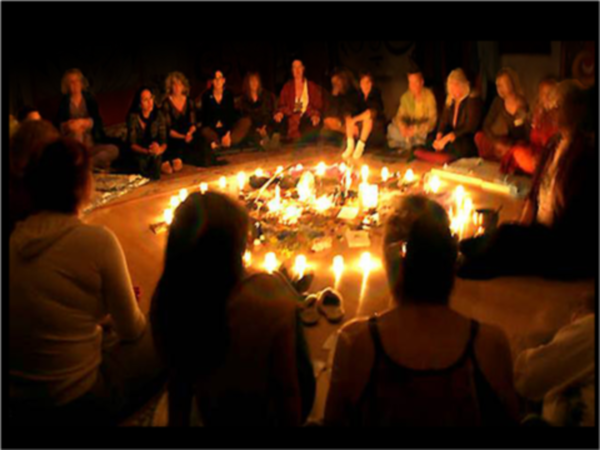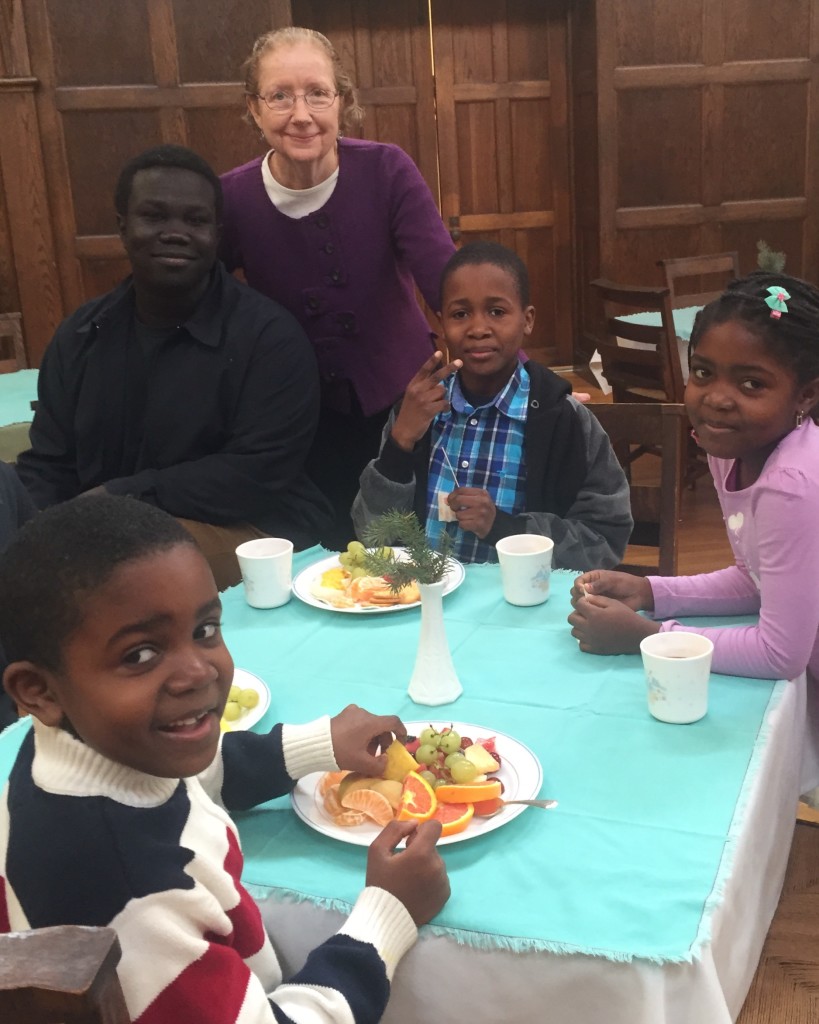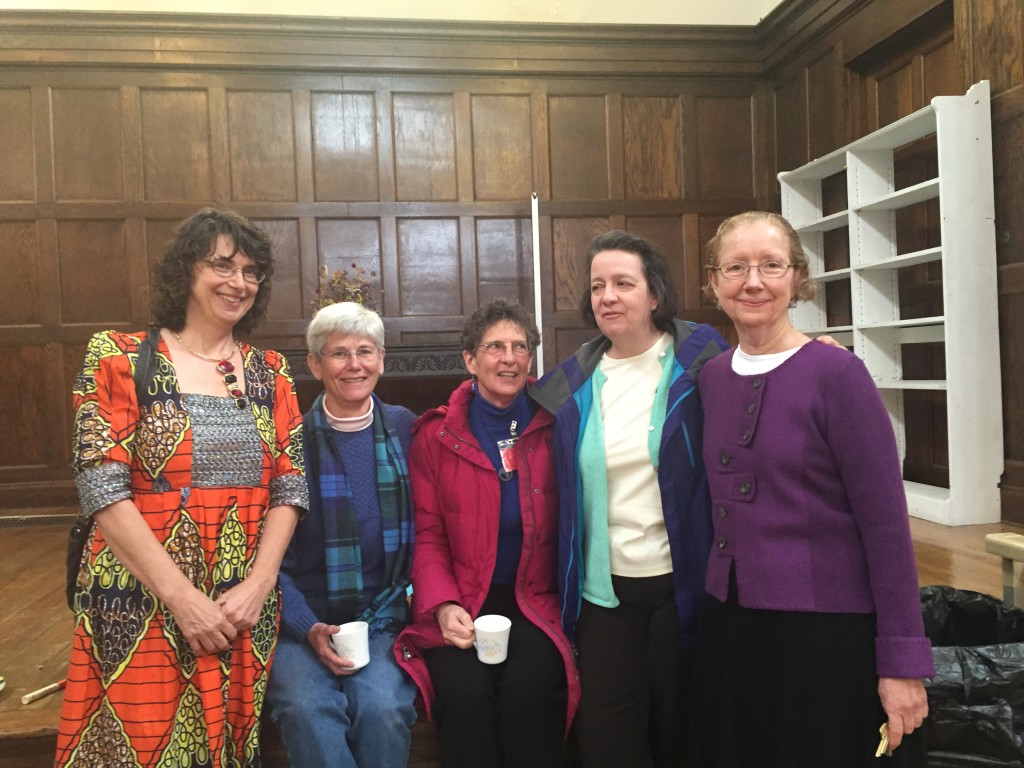I’ve been around the bend and back on my spiritual journey. As a child I attended church with my family. It was more of a social event than a meaningful religious one. I wasn’t taught to pray nor was God mentioned in my household. When I married and had children of my own my ex-husband I and joined the Unitarian Church. It fit our agnostic beliefs.

A Women’s Spiritual Circle, c. 1990’s
In the ‘90’s I embraced Women’s Spirituality. As a feminist I was drawn to the centrality of the Goddess and the Divine Feminine and women centered rituals.
Around 2003, while seeking refuge from a relationship gone bad, I discovered Greenfire, a women’s spiritual retreat center in Tenants Harbor, Maine. I was active with this community until it dissolved in 2007.
I moved on to Quaker meetings, but found myself longing for ritual, choral music and a place where I could sort out my ambivalent relationship to God.
On as recent fall Sunday I decided to try the United Church of Christ, just one block from my home in downtown Portland. I was captured by the progressive leanings of its minister, Rev. Jeanette Good, a graduate of Yale Divinity School and in her fifth decade as a minister. I was grateful for the warm welcome by the congregation of life-long members, newly arrived undocumented immigrants from Africa and old and young people of various backgrounds.
A month ago I joined State Street church, spurred on by Jeanette’s reassurance that I could come to her with my religious concerns.

Rev. Good with part of her church family
In an effort to clarify my religious views, I took Jeanette up on her offer and met with her last week to solicit her responses to some of my looming concerns.
Here are some highlights from our conversation:
PT: Why do you think religion or church is important in an individual’s life?
JG: It’s an opportunity to be part of a community, which can be especially important for women since they thrive in community. A church community can be healing. It can compensate for a family one might feel disconnected from or not close to. In a church community one shares the group value of altruism and a belief in the common good. . . . In a time when social isolation runs high, the church offers a place for connection—a place to make friends.
PT: I have trouble with a male God. The Goddess is much more of a natural fit for me.
JT: God is far more than a male image. I’m passionate about inclusive language; that’s why we pray to a Mother/Father God in my church.
PT: Speaking of prayer, I’m not sure I really know how to pray.
JT: There are many different ways of praying. Many people feel prayerful in nature. I like Abraham Hershel’s concept of prayer: Prayer is taking all or our yearnings and putting them into a place of oneness. (Or offering them to God)
Prayers of gratitude are as important as praying when things aren’t going well for us. A simple prayer to God can be, “Help me.”
PT: How does prayer differ from meditation?
JG: Prayer is a heart to heart conversation with a force greater than ourselves. In prayer God is listening to us. Why else would one pray?
PT: How can prayer make a difference in one’s life?
JT: Prayer forces us to stop what we’re doing, to be still. It’s talking to oneself, like keeping a journal. It allows us to hear ourselves, to get in touch with our hearts. To quote Paul Tillich: When we pray we are voicing our ultimate concerns. Traditionally prayer has been a process of connecting with the Holy and connecting our deepest self with the Holy.
PT: How have your religious practices changed over time?
JG: I’m more comfortable with solitude. I have nothing to lose. I’m more comfortable with questions. Swimming is a part of my spiritual discipline. I try to swim every other day. It’s a time when I can let go.
PT: What advice do you have for those who have trouble practicing forgiveness?
JG: Image a light of human kindness around someone you are trying to forgive or someone you experience as negative. Release that person into God’s love. Or if forgiveness is not forthcoming, pray for such.

Rev. Good with women members of State Street Church
How do your manage your spiritual/religious confusion?